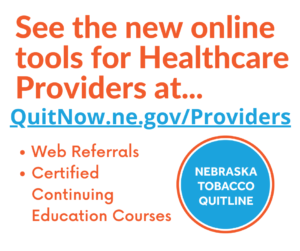Comment Period Extended FDA Tobacco Product Standards
- Tobacco Product Standard for Menthol in Cigarettes and
- Tobacco Product Standard for Characterizing Flavors in Cigars
Want a Quick Overview of the Proposed Product Standards? Grab the Fact Sheet
The U.S. Food and Drug Administration (FDA) has created a short fact sheet with an overview of the proposed products standards, including their impact on society. Download the fact sheet here for a quick, handy reference.
Tobacco Product Harm Perceptions Among U.S. Middle and High School Students
Tobacco-free Toolkit for Behavioral Health Agencies
This toolkit, from Substance Abuse and Mental Health Services Administration (SAMHSA), serves as a resource and guide for behavioral health agencies adopting a tobacco-free wellness policy for their facilities and campuses. It provides information on tobacco use among the behavioral health population, as well as a step-by-step guide to becoming a tobacco-free facility and treating tobacco use in clients and staff.
Smoking prevalence is highest among those with behavioral health conditions, and behavioral health conditions – both mental illness and illicit drug use – are highest among American Indian and Alaskan Native populations, individuals reporting as multiracial and individuals responding as Lesbian, Gay or Bisexual.
The Impact of Recent Tobacco Regulations and COVID-19 Restrictions for Future E-Cigarette Retail: Perspectives from Vape and Vape-and-Smoke Shop Merchants
U.S. State Laws Requiring Tobacco-free Grounds for Mental Health and Substance Use Facilities
FDA Launches Youth Vaping Prevention Campaign

National Conference on Tobacco or Health
June 28-30, 2022 | New Orleans, LA.
The National Conference on Tobacco or Health (NCTOH) is one of the largest, long-standing gatherings for top United States tobacco control professionals. The event attracts a diversity of public health professionals committed to policies to reduce tobacco use.
Register Here
Third National Menthol Conference
September 28-30, 2022 | Washington, D.C.
The 3rd National Menthol Conference will bring together tobacco control advocates, community leaders, public health professionals, coalitions, and health departments from across the country to provide a roadmap in the effort to remove flavored tobacco products from the market once and for all.
Register Here
Tobacco Disparities Reframing Project
OPEN NOW | Virtual
The CDC’s Office on Smoking and Health’s training resource to help the tobacco control community use new evidence-based framing and messaging.
Find it all: Here
National Conference on Health Communication, Marketing and Media
August 16-18, 2022 | Atlanta, GA.
National Public Health Information Coalition. The conference will offer limited onsite attendance on a first-come, first-served basis.
Register Here
New Director named at Center for Tobacco Products
FDA’s Center for Tobacco Products (CTP) announced the selection of a new CTP director, Brian A. King, Ph.D., M.P.H. Dr. King previously worked at the Centers for Disease Control and Prevention’s Office on Smoking and Health. CTP looks forward to working with Dr. King to ensure tobacco-related disease and death is a part of America’s past, not America’s future.
Updated Free Resource Available
June Health Awareness Observances:
- Father’s Day, June 19, 2022
- Juneteenth, June 19, 2022
- Cataract Awareness Month
- National Healthy Homes Month
- LGBT Pride Month
- Men’s Health Month
- Pow Wow Season (generally runs June through August)
- Graduation Season
Pride Month
Nebraska Tobacco Quitline Adds Continuing Education Opportunity for Healthcare Providers
 Accredited courses are now available online, through the Nebraska Tobacco Quitline, for providers looking to receive CME, CNE, or CPE credits.
Accredited courses are now available online, through the Nebraska Tobacco Quitline, for providers looking to receive CME, CNE, or CPE credits.
Every year providers in Nebraska support their patients quitting tobacco by referring them to the Quitline. The courses offered help providers discuss how cessation can increase quit success and reduce the risks associated with tobacco use, including vaping.
Several courses are offered and cover a variety of topics, such as, Tobacco Use Disparities for People with Behavioral Health Conditions, Myths About Quitting, Vaping and E-Cigarette Devices, and more. Additionally, providers can refer patients using the new online web referral option or the updated fax referral form. Go online to access tools, resources, and education modules, plus the web and fax referrals for providers ready to help patients quit, at QuitNow.ne.gov/providers.
Call 1-800-QUIT-NOW or visit QuitNow.ne.gov to reach a trained quit coach, get access to free quit-smoking medication, and make a plan to quit tobacco for good.


